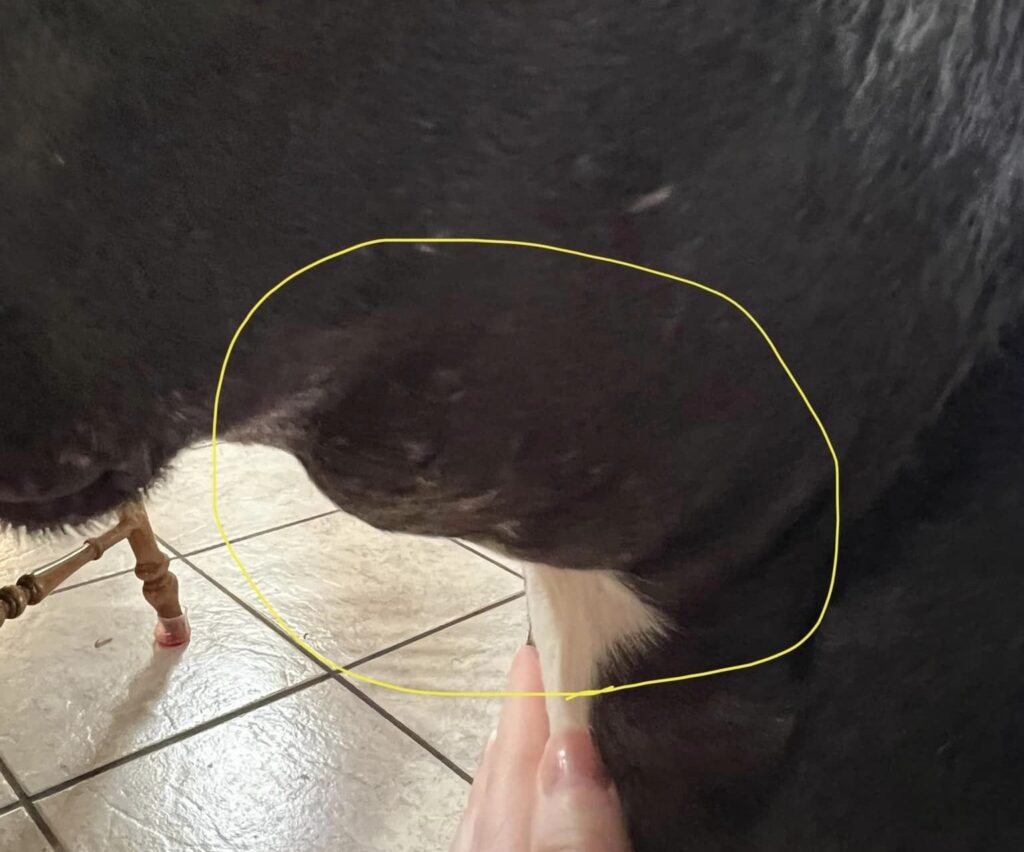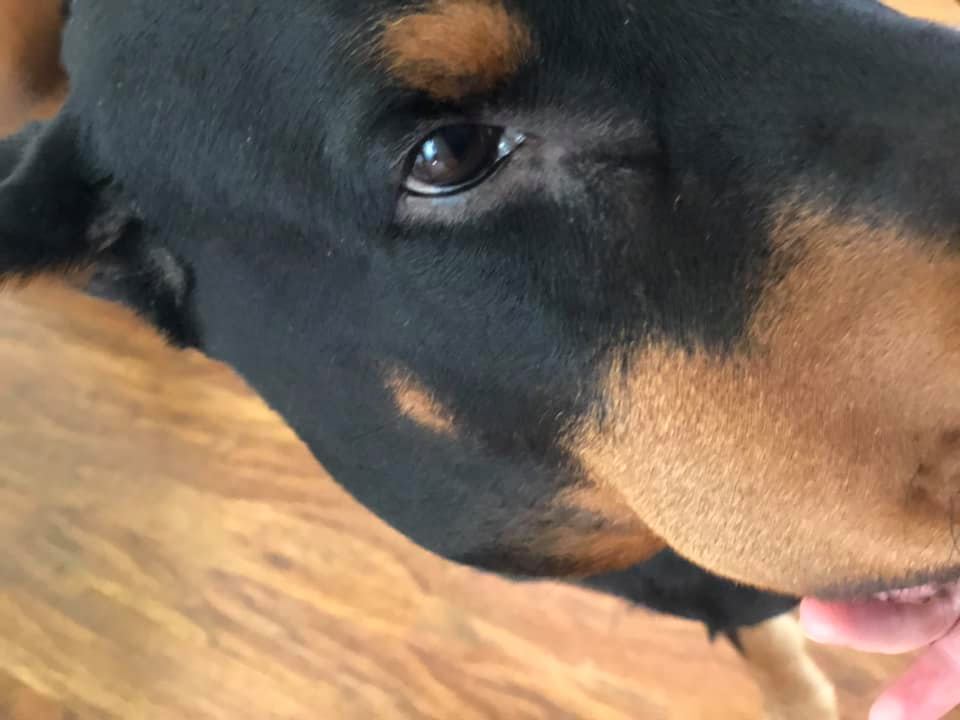Lymph nodes are small, bean-shaped structures that produce cells designed to fight infection and disease.
They are part of the larger lymphatic system, which also includes the spleen and vessels that carry lymph fluid.
In dogs, lymph nodes are located in various parts of the body including under the jaw (mandibular), in front of the shoulders (prescapular), behind the knees (popliteal), and in the groin area (inguinal).
Other nodes are located deeper within the body, such as those in the chest and abdomen.
Understanding their location can help pet owners identify unusual swelling or lumps, which could be a sign of an underlying health issue.
- Key Takeaway
- How Do Lymph Nodes Work in Dogs?
- Where Are Dog Lymph Nodes Located?
- How Do Veterinarians Diagnose Dogs’ Swollen Lymph Nodes?
- What Can I Do For My Dog With Swollen Lymph Nodes?
- How Long Does It Take Dogs To Recover From Swollen Lymph Nodes?
- Causes of Swollen Lymph Nodes in Dogs
- Symptoms of Swollen Lymph Nodes in Dogs
- Treatment For Swollen Lymph Nodes
- FAQs
- Q: What are the options for swollen lymph nodes?
- Q: What is lymphadenopathy?
- Q: What are the treatment options for swollen lymph nodes?
- Q: What is lymphoma?
- Q: How is lymphoma in dogs diagnosed?
- Q: What is the prognosis for a dog with lymphoma?
- Q: What causes swollen lymph nodes in dogs?
- Q: Can dental disease cause swollen lymph nodes in dogs?
- Q: Are swollen lymph nodes more common in older dogs?
- In Conclusion
Key Takeaway
- Lymph nodes in dogs act as filters for the body’s lymphatic system, trapping bacteria, viruses, and other foreign substances, which are then destroyed by special white blood cells called lymphocytes.
- Dog lymph nodes are located in various parts of the body including under the jaw, between the shoulders, in the groin, at the back of the knees, and deep within the chest and abdomen.
- If your dog has swollen lymph nodes, it’s essential to consult with a vet for a proper diagnosis and treatment plan, which may include medications, surgery, or supportive care like nutritional support and pain management.
How Do Lymph Nodes Work in Dogs?

Lymph nodes in dogs are a crucial component of their immune system, similar to humans.
They are part of the lymphatic system and are responsible for filtering and trapping harmful substances before they can cause more serious problems in the body.
Strategically located along the lymph circulatory system, these nodes house many lymphocytes that process antigens for antibody production.
Lymph nodes are connected by a series of vessels called lymphatics, which carry lymph fluid and white blood cells throughout the body.
When there is an infection, these nodes may swell as they work to fight off bacteria, parasites, or other harmful agents.
However, these swellings, often the first sign of multicentric lymphoma in dogs, are typically not painful and feel like firm, rubbery lumps that move freely beneath the skin.
See also: Can Dogs Live Without Lymph Nodes?
Where Are Dog Lymph Nodes Located?

Dog lymph nodes are located throughout the body including under the back of the jaw (cervical nodes), between the shoulder blades (pre-scapular nodes), at the back of the knee (popliteal nodes), in the groin region (inguinal nodes), and deeper nodes present in the neck, chest, abdomen, and legs.
Dog lymph nodes are located throughout the body.
Some of the common locations for peripheral lymph nodes include the cervical nodes under the back of the jaw, the pre-scapular nodes between the shoulder blades, and the popliteal nodes at the back of the stifle (knee).
There are also inguinal lymph nodes in the groin region.
Some lymph nodes are deeper within the body and can be found in the neck, chest, abdomen, and legs.
See also: Can Dogs Lymph Nodes Swell From Allergies?
How Do Veterinarians Diagnose Dogs’ Swollen Lymph Nodes?
Veterinarians diagnose swollen lymph nodes in dogs primarily through physical examination, where they palpate or feel the nodes that are close to the skin, such as those under the jaw, between the shoulder blades, and at the back of the knees.
If further investigation is needed, a fine needle aspirate (FNA) may be performed. This involves inserting a needle into the enlarged lymph node to collect cells for examination.
In some cases, thoracic and abdominal X-rays or ultrasounds may be ordered to diagnose enlargement in the internal lymph nodes.
If these methods are inconclusive or impractical due to the location of the swelling, a biopsy may be performed.
The treatment of swollen lymph nodes depends on the root cause, with infections typically treated with antibiotics or antiparasitic or antifungal medication, and lymphoma usually treated with chemotherapy.
See also: 9 Causes Of Swollen Lymph Nodes In Dogs
What Can I Do For My Dog With Swollen Lymph Nodes?
If the swelling is due to an infection, antibiotics are typically prescribed to treat the infection and reduce the swelling.
In some cases, anti-inflammatory pain medications, medications for an upset stomach, or sedatives may be used as part of the treatment plan.
However, if the lymph node swelling is due to cancer, more aggressive treatment options such as chemotherapy or radiation therapy may be recommended.
Early diagnosis and treatment can improve the prognosis for dogs with swollen lymph nodes and prevent further health complications.
See also: How To Check a Dog’s Lymph Nodes
How Long Does It Take Dogs To Recover From Swollen Lymph Nodes?
If the swelling is due to an infection, the swollen glands usually go down in two to three weeks once the infection has been treated and resolved.
For dogs who have had their lymph nodes surgically removed, full healing typically occurs within four weeks, although this period may be longer for older animals.
However, if the swelling is due to a disease like lymphoma and left untreated, the disease can take over a dog’s body in four to six weeks.
See also: Can Dog Lymph Nodes Be Removed?
Causes of Swollen Lymph Nodes in Dogs
- Bacterial, viral, or fungal infections
- Parasitic infestations such as heartworms or ticks
- Immune system disorders or autoimmune diseases
- Dental disease or oral infections
- Skin infections or wounds
- Metabolic diseases
- Certain medications or vaccines
- Allergic reactions
- Cancer, particularly lymphoma or leukemia
- Organ diseases such as liver or kidney disease
Symptoms of Swollen Lymph Nodes in Dogs
- Visible swelling or lumps under the skin
- Loss of appetite
- Weight loss
- Fever
- Lethargy or decreased activity levels
- Difficulty breathing or swallowing
- Persistent cough
- Changes in behavior such as increased aggression or irritability
- Unusual tiredness or weakness
- Increased thirst and urination
- Skin redness, rash, or itching around the area of the swollen lymph node
Treatment For Swollen Lymph Nodes
- Antibiotics, antifungal, or antiparasitic medications for infections
- Anti-inflammatory medications to reduce swelling and pain
- Chemotherapy or radiation therapy for cancer
- Steroids to control symptoms in certain cases
- Surgery to remove affected lymph nodes
- Immune-modulating drugs for autoimmune conditions
- Supportive care such as fluid therapy and nutritional support
- Regular monitoring and follow-up appointments with a veterinarian
- Lifestyle changes like diet modifications or increased physical activity
- Pain management strategies if necessary
FAQs
Q: What are the options for swollen lymph nodes?
A: The options for swollen lymph nodes depend on the cause. Some common treatment options include medication, surgery, or radiation therapy.
Q: What is lymphadenopathy?
A: Lymphadenopathy refers to the enlargement of lymph nodes. It can be a sign of an underlying infection or other medical condition.
Q: What are the treatment options for swollen lymph nodes?
A: The treatment options for swollen lymph nodes depend on the underlying cause. In some cases, no treatment may be necessary, while in others, medication or other interventions may be recommended.
Q: What is lymphoma?
A: Lymphoma is a type of cancer that affects the lymphatic system, which includes the lymph nodes, lymphocytes (a type of white blood cell), and other immune cells.
Q: How is lymphoma in dogs diagnosed?
A: Lymphoma in dogs is typically diagnosed through a combination of physical examination, blood tests, imaging (such as X-rays or ultrasounds), and often a fine needle aspirate of the enlarged lymph node for microscopic examination by a veterinary pathologist.
Q: What is the prognosis for a dog with lymphoma?
A: The prognosis for a dog with lymphoma depends on several factors, including the stage of the disease, the overall health of the dog, and the treatment options chosen. In general, early detection and appropriate treatment can prolong a dog’s life and improve the quality of life.
Q: What causes swollen lymph nodes in dogs?
A: Swollen lymph nodes in dogs can be caused by a variety of factors, including infections, inflammation, immune system disorders, and certain types of cancer such as lymphoma. In some cases, the cause may be unknown.
Q: Can dental disease cause swollen lymph nodes in dogs?
A: Yes, dental disease can sometimes cause swollen lymph nodes in dogs. Infections in the mouth can spread to the nearby lymph nodes, leading to their enlargement.
Q: Are swollen lymph nodes more common in older dogs?
A: Swollen lymph nodes can occur in dogs of any age, but they may be more common in older dogs due to a higher likelihood of developing certain medical conditions that can cause lymph node enlargement.
In Conclusion
Some of the common locations include under the jaw (known as submandibular lymph nodes), in the neck on either side of the windpipe, between the shoulders (pre-scapular lymph nodes), in the groin (inguinal lymph nodes), and at the back of the knees (popliteal lymph nodes).
These nodes play a crucial role in the immune function of dogs, producing cells to fight infections and diseases.





Leave a Reply